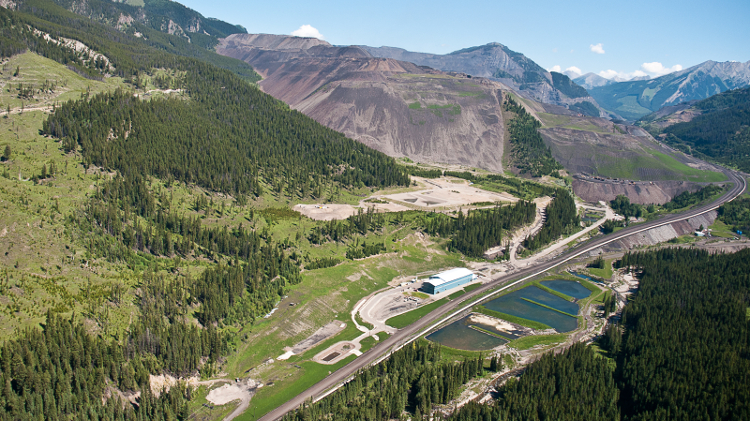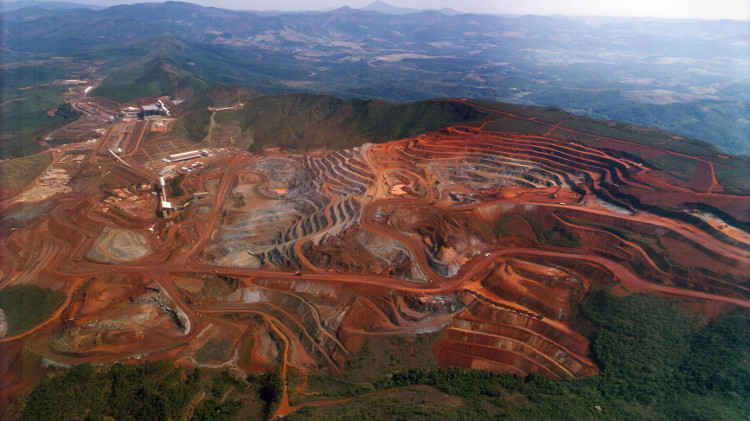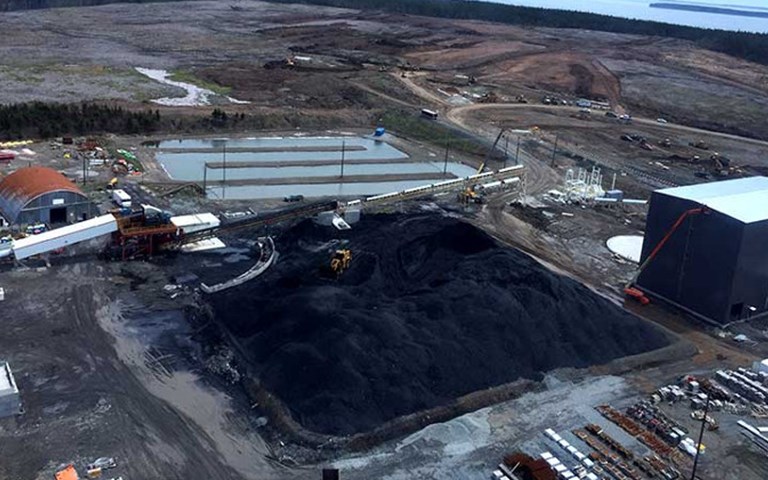The orders and warnings given to Kameron Collieries' Donkin mine all related to work safety issues. Courtesy of Morien Resources Corp.
Updated on Sept. 29 to include comment from Kameron Collieries as well as additional information on Donkin's inspections and safety performance.
Donkin mine, the first coal mine to operate in Nova Scotia since 2001, has received 10 compliance orders and 29 warnings for violations from the Nova Scotia Department of Labour since it began production at the end of February, according to a CBC investigation into the mine.
The orders and warnings were all related to work safety issues, including missing, inadequate or non-functioning emergency equipment, explosion barriers and records.
The lack of a backup ventilation fan caused the government to order the temporary closure of the mine following a power outage on March 22. The company said the underground workers were evacuated within 15 minutes of losing power, but Scott Nauss, the senior director of inspection and compliance with Nova Scotia’s occupational health and safety division, told CBC the government has no way to independently verify that.
Nauss told CIM Magazine the amount of orders and warnings Donkin has received cannot be compared to another mine’s numbers since it has “no peers to compare to.” Donkin is the only operating coal mine in the province, it is the first to operate under new provincial regulations enacted in 2008 and the underground coal mining industry is one of the most heavily regulated industries in the province.
For these reasons, Nauss said it may be “challenging” for the mine to be in compliance with every regulation, “but my division is inspecting it very regularly and the company has shown a commitment to come into compliance very quickly,” said Nauss.
More than 17 such inspections, both scheduled and unannounced, have been performed at the mine since 2016.
The province’s Underground Mining Regulations were completely rewritten in 2008 with specific provisions and more stringent approval requirements for underground coal mines. The regulations were influenced by the Westray mine disaster, an explosion that killed 26 coal miners in Plymouth, Nova Scotia 25 years ago in May. Following the explosion in the mine, there were several accusations of gross negligence at the site and of insufficient government regulations.
“The provincial government takes occupation health and safety, and particularly mining safety, very seriously, because of Westray,” said Nauss. “We’re focusing a lot of effort into making sure this mine is in compliance.”
RELATED: Federal government announces plan to phase-out traditional coal power by 2030
Shannon Campbell, the vice-president of project development and external affairs at Kameron Collieries, the owner of Donkin, echoed Nauss’s caveat about context when operating in a new era for coal mining in the province. “One thing is for certain, Kameron strives to be compliance order free even with a high rate of inspection and the rigorous regulations," he said. "We consider the inspectors as partners in health and safety and welcome their feedback to improve our systems and processes. We have a collaborative relationship and they want to see the mine succeed in safety and production.”
The mine currently has 102 employees and, as of late September, had had no time-lost-claims since it registered with the Workers’ Compensation Board of Nova Scotia in early 2015.
The federal Westray bill, which came into effect in 2004, made it possible for organizations and corporations to be held criminally liable for negligence in cases of serious injury or death on the job.
Kameron Collieries is a subsidiary of the Cline Group, which is headed by mining magnate Chris Cline and based in Illinois. The Cline Group has claim to approximately three billion tons of coal reserves across Illinois and the Northern Appalachia.
According to data from the United States’ Mine Safety and Health Administration (MSHA), the Cline Group operates at least four mines under its subsidiary Foresight Energy Labor LLC, which have varied safety records. The Deer Run mine in Montgomery County, Illinois, for example, has received just two citations and one order this year from the MSHA, whereas the MC#1 mine in Franklin County, Illinois, received a total of 238 citations and orders for the same time period.
MC#1 has received hundreds of citations per year since 2012 and has reported “nonfatal occurrences” with lost workdays at a higher rate than the national average for coal mines for six out of the past nine years, including 2017. The mine has paid hundreds of thousands of dollars in penalty fines, including in 2014 when it paid US$967,387 for more than 600 infractions, including not having a roof control plan, not having “self-rescue devices” available for underground miners and failing to correct a “hazardous condition” or properly identify it with a “conspicuous danger sign.”
Donkin has an expected 30-year mine life and houses a predicted 483 million tonnes of coal.
With files from Kelsey Rolfe and Ryan Bergen




